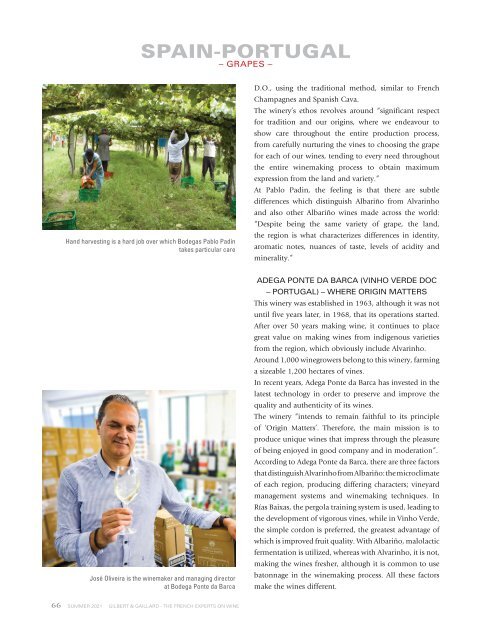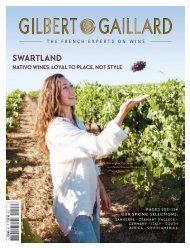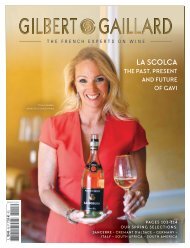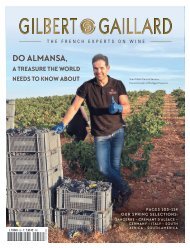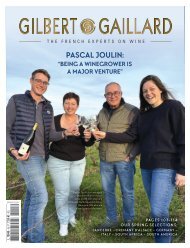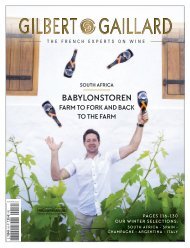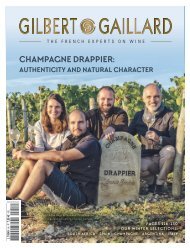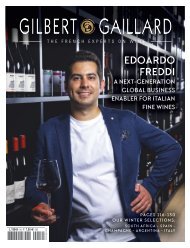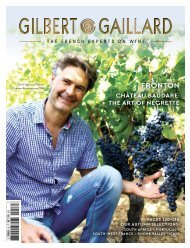Create successful ePaper yourself
Turn your PDF publications into a flip-book with our unique Google optimized e-Paper software.
SPAIN-PORTUGAL<br />
– GRAPES –<br />
Hand harvesting is a hard job over which Bodegas Pablo Padín<br />
takes particular care<br />
D.O., using the traditional method, similar to French<br />
Champagnes and Spanish Cava.<br />
The winery’s ethos revolves around “significant respect<br />
for tradition and our origins, where we endeavour to<br />
show care throughout the entire production process,<br />
from carefully nurturing the vines to choosing the grape<br />
for each of our wines, tending to every need throughout<br />
the entire winemaking process to obtain maximum<br />
expression from the land and variety.”<br />
At Pablo Padin, the feeling is that there are subtle<br />
differences which distinguish Albariño from Alvarinho<br />
and also other Albariño wines made across the world:<br />
“Despite being the same variety of grape, the land,<br />
the region is what characterizes differences in identity,<br />
aromatic notes, nuances of taste, levels of acidity and<br />
minerality.”<br />
José Oliveira is the winemaker and managing director<br />
at Bodega Ponte da Barca<br />
ADEGA PONTE DA BARCA (VINHO VERDE DOC<br />
– PORTUGAL) – WHERE ORIGIN MATTERS<br />
This winery was established in 1963, although it was not<br />
until five years later, in 1968, that its operations started.<br />
After over 50 years making wine, it continues to place<br />
great value on making wines from indigenous varieties<br />
from the region, which obviously include Alvarinho.<br />
Around 1,000 winegrowers belong to this winery, farming<br />
a sizeable 1,200 hectares of vines.<br />
In recent years, Adega Ponte da Barca has invested in the<br />
latest technology in order to preserve and improve the<br />
quality and authenticity of its wines.<br />
The winery “intends to remain faithful to its principle<br />
of ‘Origin Matters’. Therefore, the main mission is to<br />
produce unique wines that impress through the pleasure<br />
of being enjoyed in good company and in moderation”.<br />
According to Adega Ponte da Barca, there are three factors<br />
that distinguish Alvarinho from Albariño: the microclimate<br />
of each region, producing differing characters; vineyard<br />
management systems and winemaking techniques. In<br />
Rías Baixas, the pergola training system is used, leading to<br />
the development of vigorous vines, while in Vinho Verde,<br />
the simple cordon is preferred, the greatest advantage of<br />
which is improved fruit quality. With Albariño, malolactic<br />
fermentation is utilized, whereas with Alvarinho, it is not,<br />
making the wines fresher, although it is common to use<br />
batonnage in the winemaking process. All these factors<br />
make the wines different.<br />
66 SUMMER 2021 GILBERT & GAILLARD - THE FRENCH EXPERTS ON WINE


